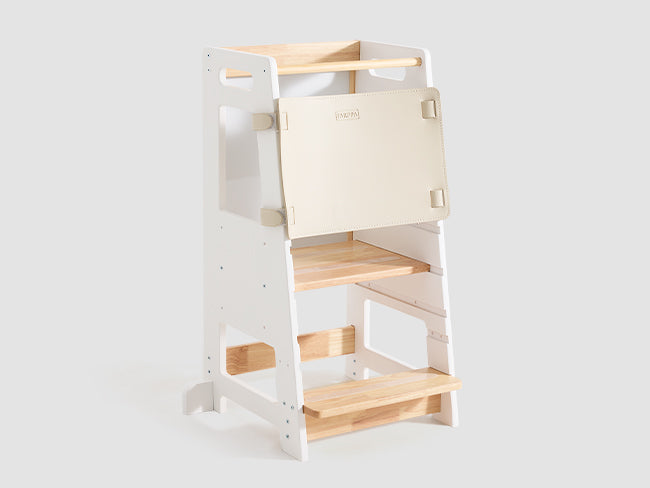Parent-child interaction in modern families isn’t limited to designated “playtime.” It weaves through everyday life—meals, tidying up, kitchen tasks, and storytime—shaping children’s independence, self-discipline, and emotional intelligence.
Morning Rituals: A Warm Start
Mornings can become small daily rituals. In breakfast preparation, brushing teeth, and setting the table, parents intentionally involve children. Simple tasks like fetching utensils or pouring milk help cultivate independence and responsibility.
Children may face minor challenges or spills while doing these tasks. Parents’ patience and encouragement teach children to tackle difficulties while feeling trusted and supported, building confidence and establishing warmth and security in the parent-child relationship from the start of the day.
Mealtimes: Natural Lessons in Rules and Communication
Meals offer more than nutrition—they are opportunities for learning routines and focus. Consistent mealtime, a calm environment, and parental presence help children understand that this is a time for eating, concentration, and manners.
Parents can engage children by asking questions and encouraging expression: “What fun thing happened at preschool today?” This develops language and listening skills while teaching patience and turn-taking.
Kitchen Tasks: Participation and Responsibility
Children love to imitate adults, and kitchen activities are a natural practice ground. Simple tasks like washing vegetables, stirring, or organizing utensils foster responsibility and a sense of accomplishment.
Parents can turn these tasks into playful challenges, letting children choose which task they want to help with, or timing activities for fun. Children learn turn-taking, safety awareness, patience, and feel valued as part of the family, nurturing independence and collaboration.
Reading and Playtime: Focus and Emotional Connection
Designated reading or play sessions can be family rituals. Soft lighting, cozy spaces, and warm presence help children learn focus. Parents engage through storytelling, role-playing, or interactive games, deepening emotional connection and developing creativity and empathy.
For example, letting a child act out a character encourages them to consider feelings and choices. This approach goes beyond storytelling, helping children understand emotions and cause-effect relationships, while strengthening parent-child bonds.
Evening Wrap-Up: Tidying and Reflection
End-of-day routines, like tidying toys or books, are also opportunities for interaction. Parents guide and praise children’s efforts, teaching organization and responsibility.
Parents can also reflect on the day with their child, discussing highlights and feelings. This helps children develop self-awareness and communication skills, while reinforcing parent-child relationships.
Small Rituals, Big Impact
Everyday moments, though seemingly ordinary, are key growth opportunities. With intentionality, patience, and active engagement, each breakfast, kitchen task, and story session becomes practice for independence, self-discipline, and emotional development.
True presence isn’t about spending more time or money—it’s about making children feel seen, trusted, and loved in every detail of daily life. When small rituals become habits, parent-child bonds grow stronger, providing a foundation for confidence, independence, and social skills.




























